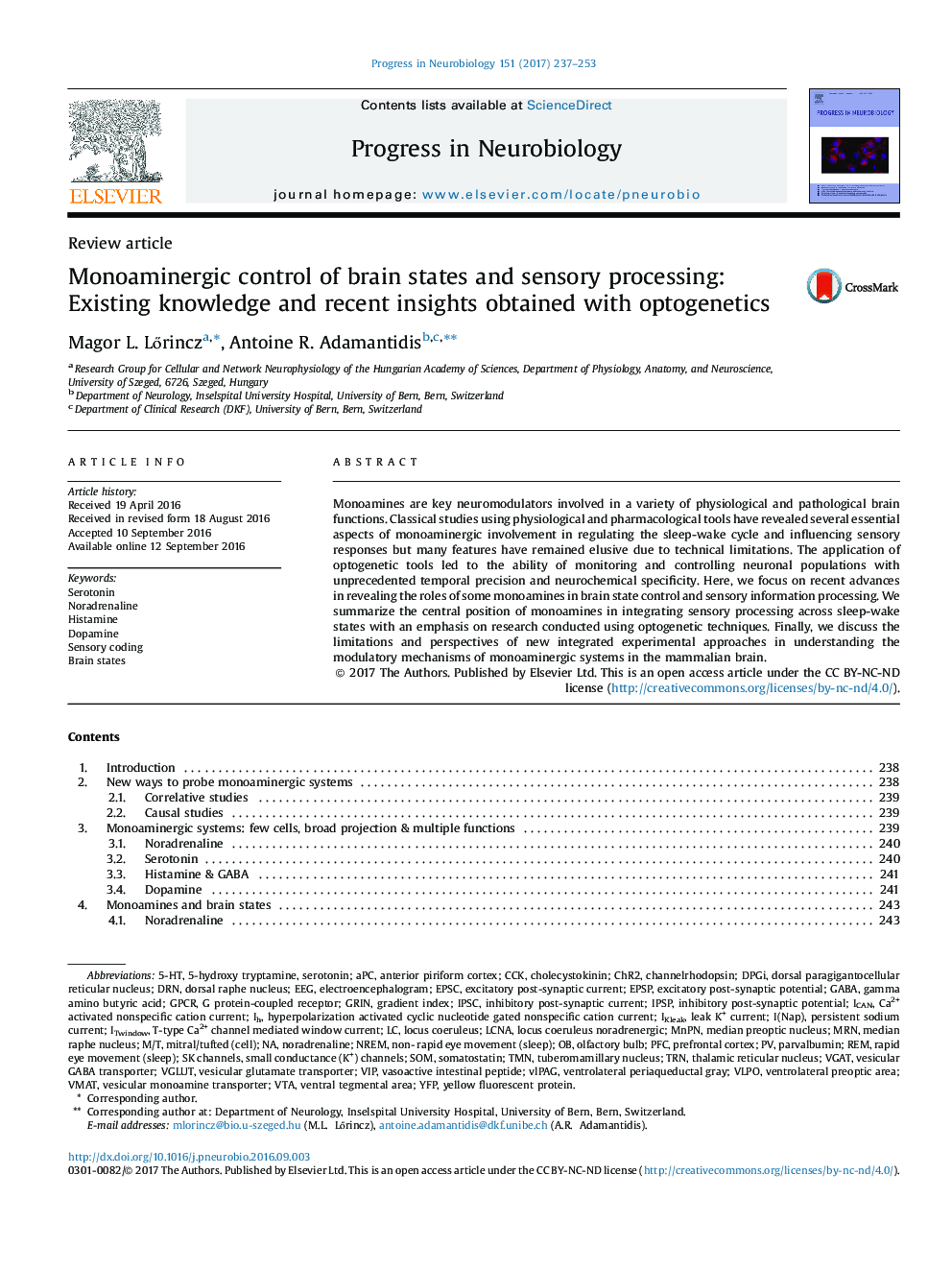| Article ID | Journal | Published Year | Pages | File Type |
|---|---|---|---|---|
| 5739094 | Progress in Neurobiology | 2017 | 17 Pages |
â¢Monoamines are key neuromodulators involved in a variety of physiological and pathological brain functions.â¢This review focuses on the role of monoamines in regulating brain states and sensory information processing with a particular emphasis on novel results obtained using optogenetic methods.â¢Neuronal correlates of brain state transitions and responses to sensory stimuli is presented.â¢The effects of (in)activating monoaminergic neurons on brain states and sensory coding is discussed.
Monoamines are key neuromodulators involved in a variety of physiological and pathological brain functions. Classical studies using physiological and pharmacological tools have revealed several essential aspects of monoaminergic involvement in regulating the sleep-wake cycle and influencing sensory responses but many features have remained elusive due to technical limitations. The application of optogenetic tools led to the ability of monitoring and controlling neuronal populations with unprecedented temporal precision and neurochemical specificity. Here, we focus on recent advances in revealing the roles of some monoamines in brain state control and sensory information processing. We summarize the central position of monoamines in integrating sensory processing across sleep-wake states with an emphasis on research conducted using optogenetic techniques. Finally, we discuss the limitations and perspectives of new integrated experimental approaches in understanding the modulatory mechanisms of monoaminergic systems in the mammalian brain.
